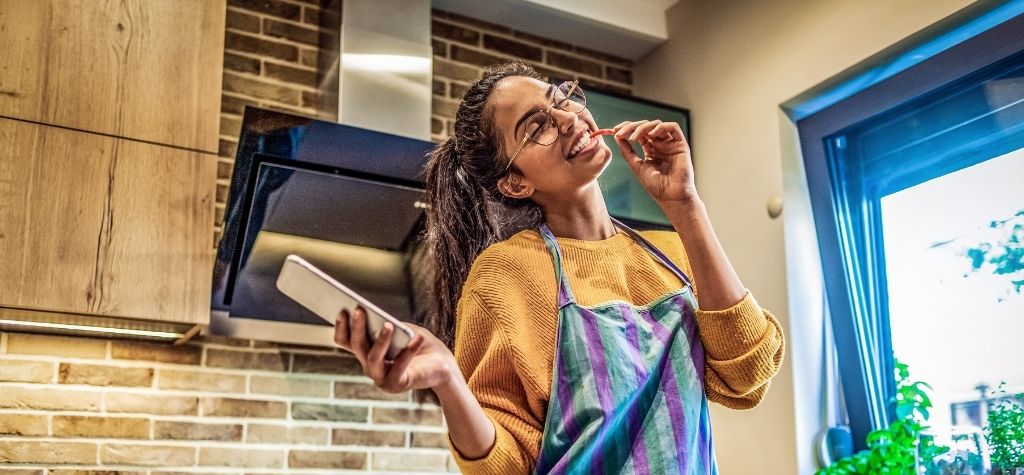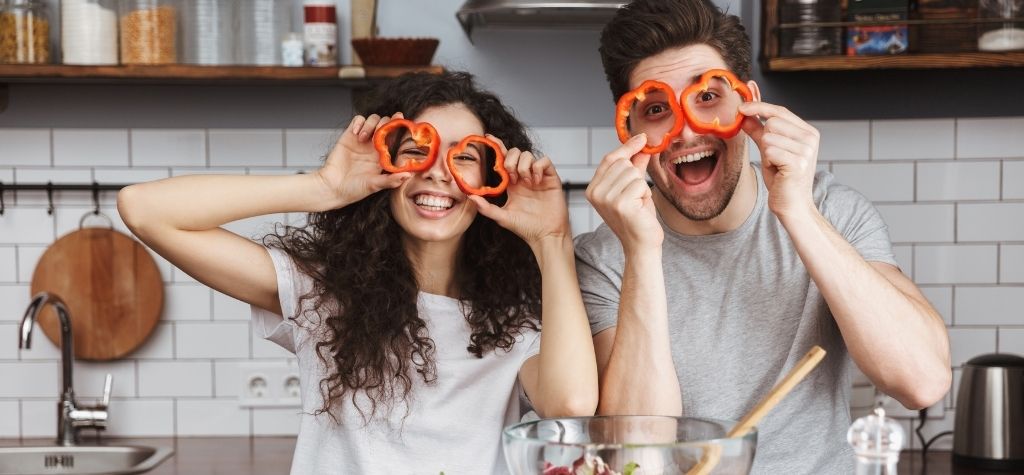Cooking is a daily necessity, but few people realize the risks it poses to eye health. From splattering oil and spicy fumes to sharp utensils and heat exposure, the kitchen is filled with potential hazards that can irritate or even injure your eyes.
Fortunately, by following a few simple precautions, you can protect your eyes while cooking and keep them safe from common dangers. Here are seven essential tips to safeguard your vision in the kitchen.

1. Shield Your Eyes from Oil Splatters
One of the biggest eye hazards in the kitchen is hot oil splattering while frying or sautéing food. A single drop of hot oil can cause serious discomfort and even corneal burns.
How to Protect Your Eyes:
- Use a splatter screen or lid when frying foods.
- Stand a safe distance from the pan to avoid direct exposure.
- Reduce splattering by drying wet foods before adding them to hot oil.
- If oil gets into your eye, rinse it immediately with lukewarm water for at least 15 minutes and avoid rubbing.
2. Be Cautious with Spicy and Strong Ingredients
Chopping onions, handling chili peppers, and working with strong spices can release irritants that cause eye discomfort, tearing, and burning sensations.
How to Protect Your Eyes:
- Use a sharp knife to reduce onion juice release.
- Chill onions in the refrigerator for 30 minutes before cutting to minimize fumes.
- Wear kitchen gloves when handling hot peppers, and avoid touching your eyes.
- If spice or chili residue gets into your eyes, flush them with clean water immediately.
3. Avoid Steam and Heat Damage
Steaming pots and ovens release intense heat and moisture, which can cause temporary blurry vision, irritation, and dryness.
How to Protect Your Eyes:
- Open oven doors carefully to prevent sudden bursts of hot air.
- Keep your face at a safe distance when checking boiling pots.
- Use ventilation fans or open windows to reduce humidity in the kitchen.
- If your eyes feel dry after cooking, use artificial tears to rehydrate them.
4. Prevent Soap and Detergent Irritation
Washing dishes and cleaning the kitchen often involves harsh detergents and chemicals that can irritate the eyes if splashed.
How to Protect Your Eyes:
- Wear gloves and safety glasses when handling strong cleaning products.
- Choose mild, eye-friendly dish soaps to reduce irritation.
- Rinse hands thoroughly before touching your face or eyes.
- If cleaning agents get into your eyes, rinse immediately with cool, running water for at least 10 minutes.
5. Keep Sharp Utensils Away from Your Face
Knives, forks, and other sharp utensils are essential for cooking, but improper handling can lead to accidental eye injuries.
How to Protect Your Eyes:
- Store knives and sharp tools in designated holders.
- Never gesture with sharp utensils in hand.
- Keep cutting boards stable to prevent slipping while chopping.
- If a sharp object gets close to your eye, seek medical attention immediately, even if there is no visible injury.
6. Reduce Eye Strain from Poor Lighting
Cooking in dim lighting can strain your eyes, making it harder to focus and increasing the risk of accidents.
How to Protect Your Eyes:
- Use bright, well-placed lighting in your kitchen.
- Install under-cabinet LED lights for better visibility while chopping and cooking.
- Choose warm, glare-free bulbs to reduce eye fatigue.
- If your eyes feel strained, take breaks and blink frequently to keep them hydrated.
7. Maintain Proper Hygiene to Prevent Eye Infections
Touching raw foods, handling spices, and working with unclean surfaces can introduce bacteria and irritants to your eyes if you rub them.
How to Protect Your Eyes:
- Wash your hands thoroughly with soap before touching your face.
- Use separate cutting boards for raw meat and vegetables to avoid cross-contamination.
- Keep kitchen towels and sponges clean and dry to prevent bacterial buildup.
- If your eyes become red, swollen, or irritated, consult a doctor to rule out an infection.
Final Thoughts: Keep Your Eyes Safe While Cooking

Cooking should be a safe and enjoyable experience, but neglecting eye protection can lead to irritation, discomfort, or even serious injuries. By adopting these simple precautions, you can keep your eyes safe while preparing delicious meals.
Which of these tips will you start using today? Your eyes will thank you!
FAQs: Cooking and Eye Safety
1. What should I do if hot oil gets in my eye?
Immediately rinse your eye with lukewarm water for at least 15 minutes and avoid rubbing it. If pain persists, seek medical help.
2. How can I stop onions from making my eyes tear up?
Chill onions in the fridge for 30 minutes before cutting, or use a sharp knife to minimize juice release.
3. Can steam damage my eyes?
Excessive exposure to steam can cause temporary eye irritation and dryness. Stand at a safe distance and use proper ventilation.
4. Are there any protective glasses for cooking?
Yes, anti-fog or splash-proof safety glasses can protect against oil splashes, steam, and irritants like onions or chili peppers.
5. How do I remove chili pepper residue from my eyes?
Rinse your eyes with cool water immediately. Avoid touching them with contaminated hands and wash thoroughly with soap.
6. Can dishwashing detergents harm my eyes?
Yes, strong detergents can irritate or burn your eyes. Always rinse thoroughly and use mild, eye-friendly soaps.

